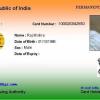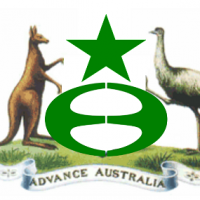訊息: 16
語言: English
rajomishoro (顯示個人資料) 2012年1月30日上午1:46:51
I am new to Esperanto.
I have some problem regarding
formation of a compound word in
Esperanto.
For example: a diary is called taglibro in
esperanto,
cant' we call a diary librtago?
If we cannot, please tell me why.
What rule governs the formation
of a compound word in Esperanto?
I have seen a single word can
express a whole idea/sentence in
Esperanto,
do we have specific rule
regarding it or are we free to put the 'roots' in any order?
patrik (顯示個人資料) 2012年1月30日上午5:32:29
rajomishoro:Saluton Amikoj! I am new to Esperanto. I have some problem regarding formation of a compound word in Esperanto. For example: a diary is called taglibro in esperanto, cant' we call a diary librtago? If we cannot, please tell me why.I hope that this explanation can help you.
What rule governs the formation of a compound word in Esperanto? I have seen a single word can express a whole idea/sentence in Esperanto, do we have specific rule regarding it or are we free to put the 'roots' in any order?

P.S. "librtago" is hard to pronounce.
sudanglo (顯示個人資料) 2012年1月30日上午10:39:42
You can safely ignore these and go by your common sense, provided you remember two things.
1. The main element in a compound word comes at the end.
2. In the case of some words the main element is the finaĵo.
Your principle problem in the beginning will be recognizing the elements in a compound word (parsing it, if you will).
So, filino, is a daughter (fil-ino) and not filthy flax (fi-lino).
The different parsings of compound words is source of Esperanto jokes.
There are many 'karamboloj' in Esperanto, where a word is capable of more than one parsing, but it is really rare in practice that this causes a problem. Context makes it clear.
Here are some more for your entertainment.
Kataro - a collection of cats, or catarrh?
Karnavalo - a carnival, or a bosomy woman's cleavage?
Intimo - intimacy, or a fear of women?
erinja (顯示個人資料) 2012年1月30日下午1:02:59
Therefore a diary can easily be understood as a "day book" (a book, which has to do with the days of someone's life). A "book day" sounds like it's a day celebrating books. Therefore "taglibro" is a diary or journal; a "librotago" is a day in honor of books.
The central o in a compound word can be included or left out, depending on ease of pronunciation. Although "taglibro" is the most common word for diary, "tagolibro" is also correct. For our imaginary Book Day, Librotago is just as correct as Librtago, and even preferable, because it is easier to pronounce.
Put the roots in the order that makes the most logical sense to you, and you'll do fine.
chrisim101010 (顯示個人資料) 2012年1月30日下午2:23:14
Taglibro
Taga libro
Day book
Librtago
Libra tago
Book day
Breaking it down like that, Taglibro fits the description best.
sudanglo (顯示個人資料) 2012年1月30日下午11:15:29
I am curious Raj. What tempted you to think that the word for a diary (which is a sort of book, and not a sort of day) could be expressed by librotago?
Mustelvulpo (顯示個人資料) 2012年1月31日上午12:59:52
rajomishoro (顯示個人資料) 2012年1月31日下午12:19:43
patrik:Thanks for the link. Its really helpful.rajomishoro:Saluton Amikoj! I am new to Esperanto. I have some problem regarding formation of a compound word in Esperanto. For example: a diary is called taglibro in esperanto, cant' we call a diary librtago? If we cannot, please tell me why.I hope that this explanation can help you.
What rule governs the formation of a compound word in Esperanto? I have seen a single word can express a whole idea/sentence in Esperanto, do we have specific rule regarding it or are we free to put the 'roots' in any order?
P.S. "librtago" is hard to pronounce.
rajomishoro (顯示個人資料) 2012年1月31日下午12:45:56
sudanglo:For an English speaker there is nothing surprising about the order of elements in Esperanto compounds.Firstly,
I am curious Raj. What tempted you to think that the word for a diary (which is a sort of book, and not a sort of day) could be expressed by librotago?
A million thanks to you for your support.
Actualy I bought a new diary to take notes about Esperanto.
Now it was time to give a title to it.
I was thinking for a single word in Esperanto expressing the idea of "my language diary. Being a beganer I searched throug dictionary. I constructed/ coined a word "mialangovtaglibro".
I was not sure about it being right.
To be sure about it I asked that question.
I did not ask about "mialangovtaglibro" for the fear of being a "laughing stock" in the forum.
Now my "mind" is giving me another problem:
How to express the idea of "linguistically written my language diary"?
darkweasel (顯示個人資料) 2012年1月31日下午2:06:44






